A free and open source self hosted solution for grabbing lyrics for your Plex Music Libraries.
First and foremost, checkout tranzuanthang's lrcget this was the main inspiration behind Lyric-Sync. If you're looking for an offline solution, then lrcget is your answer. tranxuanthang is also the individual behind lrclib.net which is currently the only lyric source that Lyric-Synce supports (more to come in the future)
v0.0.1
- Connect with your personal Plex Server
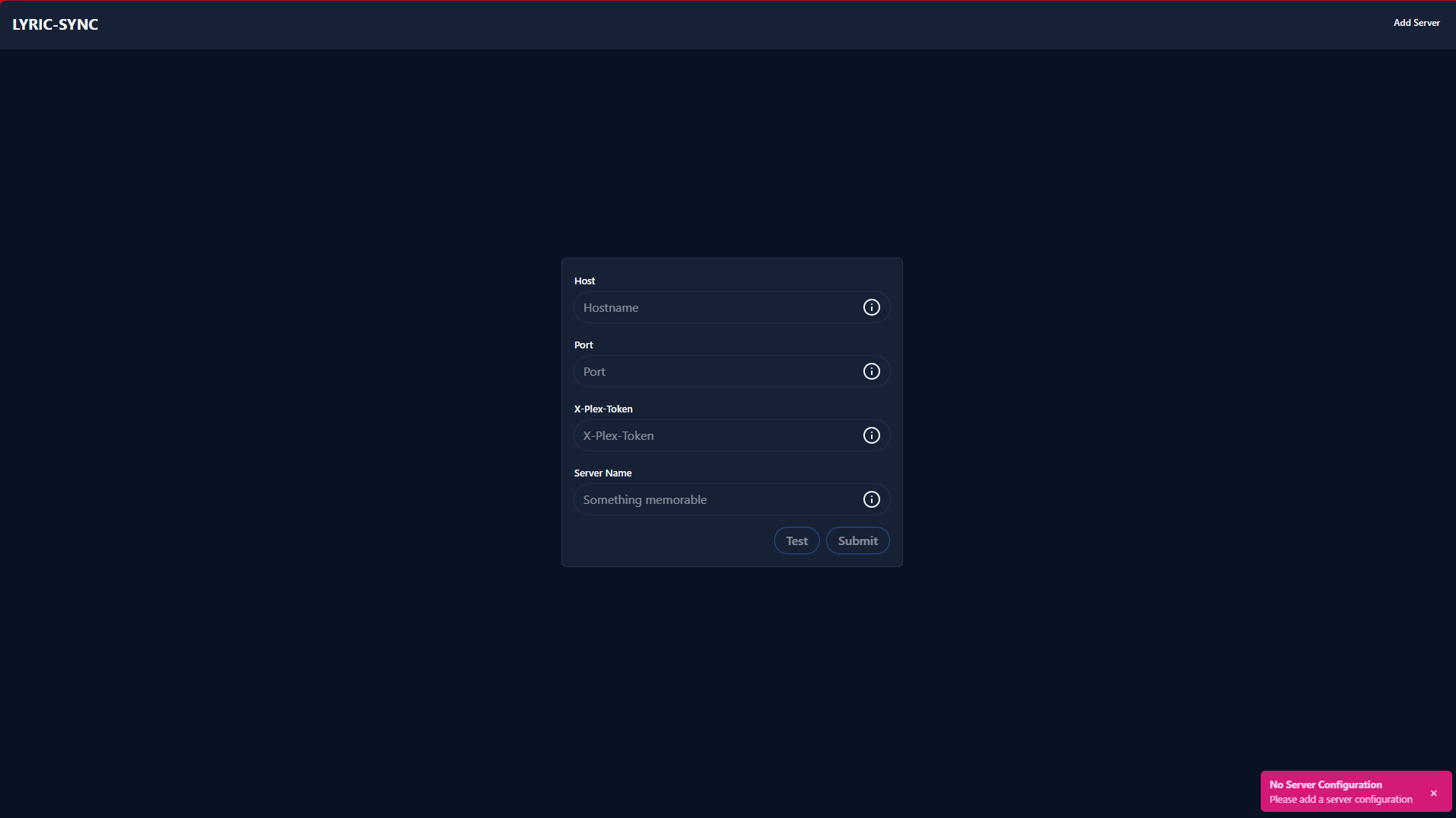
- Grab lyrics for multiple music libraries
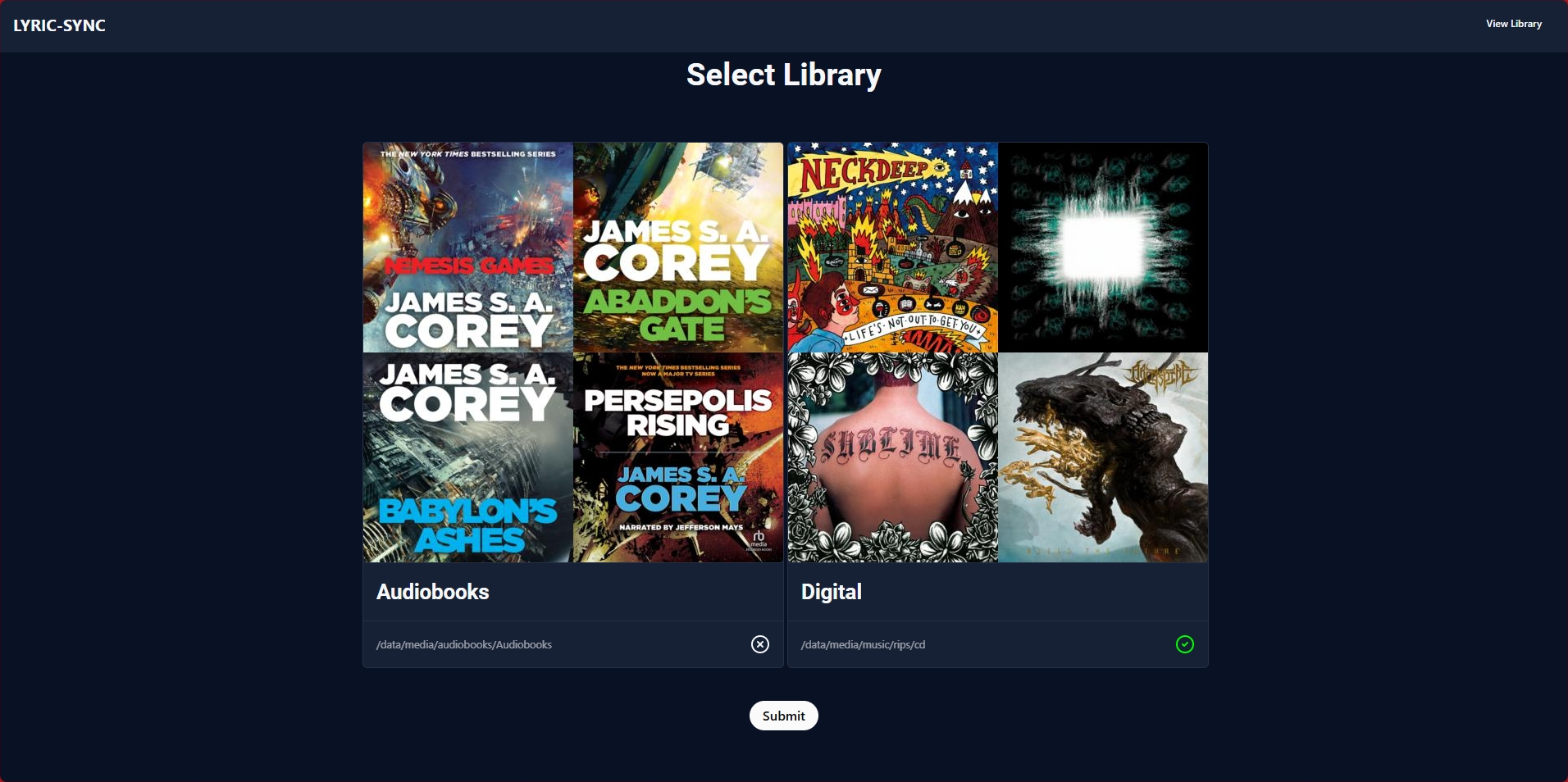
- View all library Artists and their sync progress
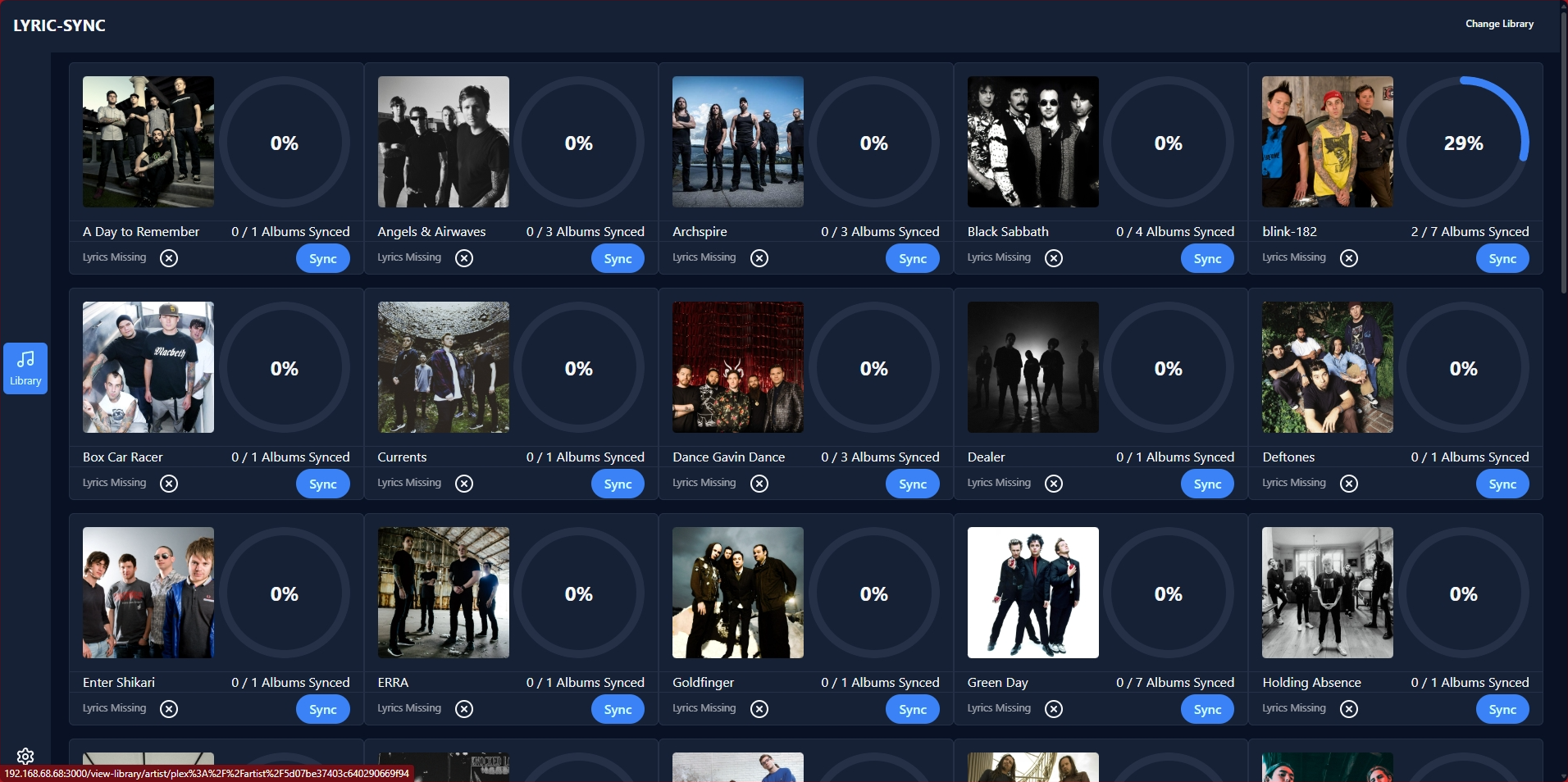
- View all Albums by a specific artist
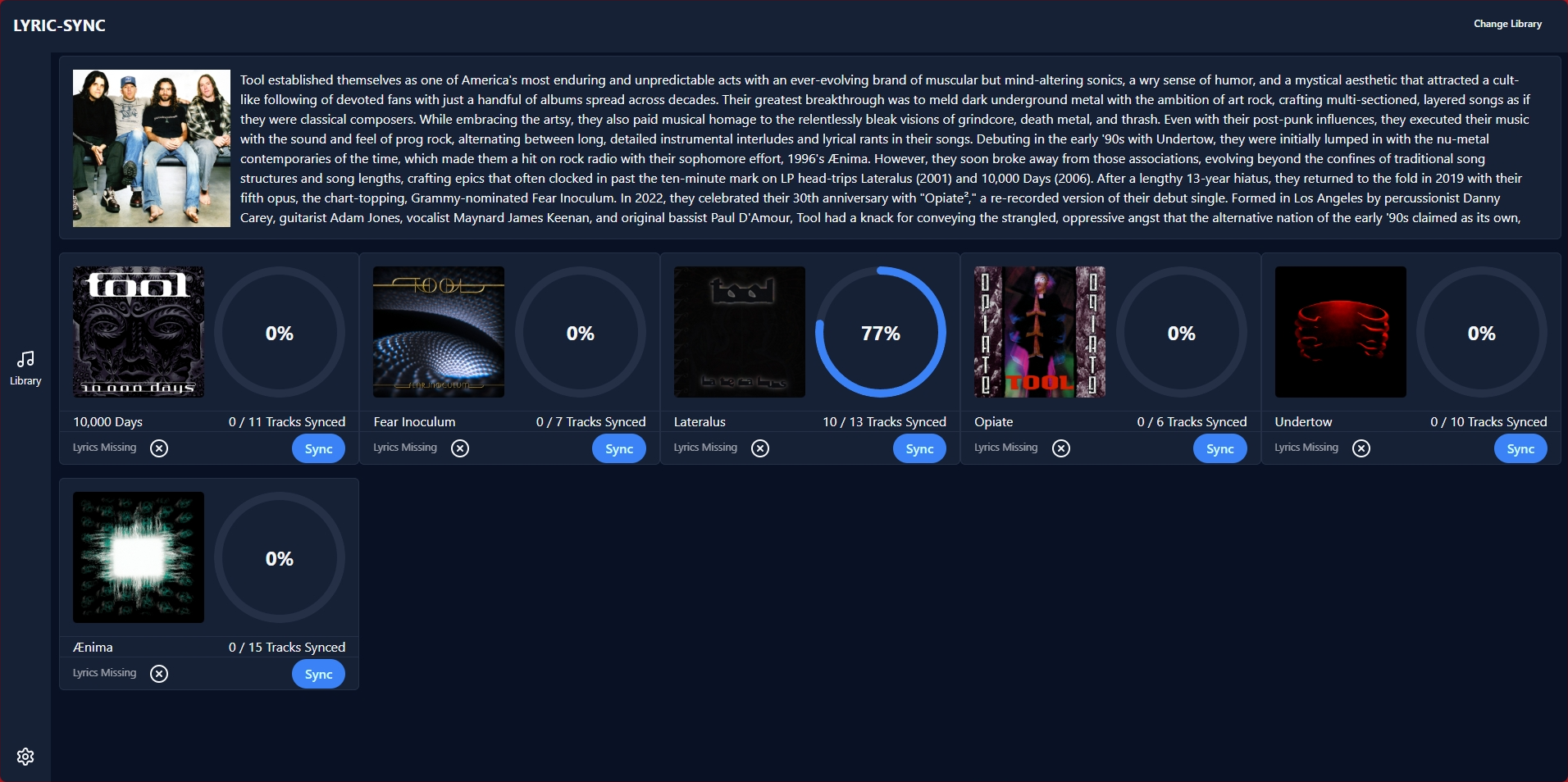
- View an Album and all of its tracks
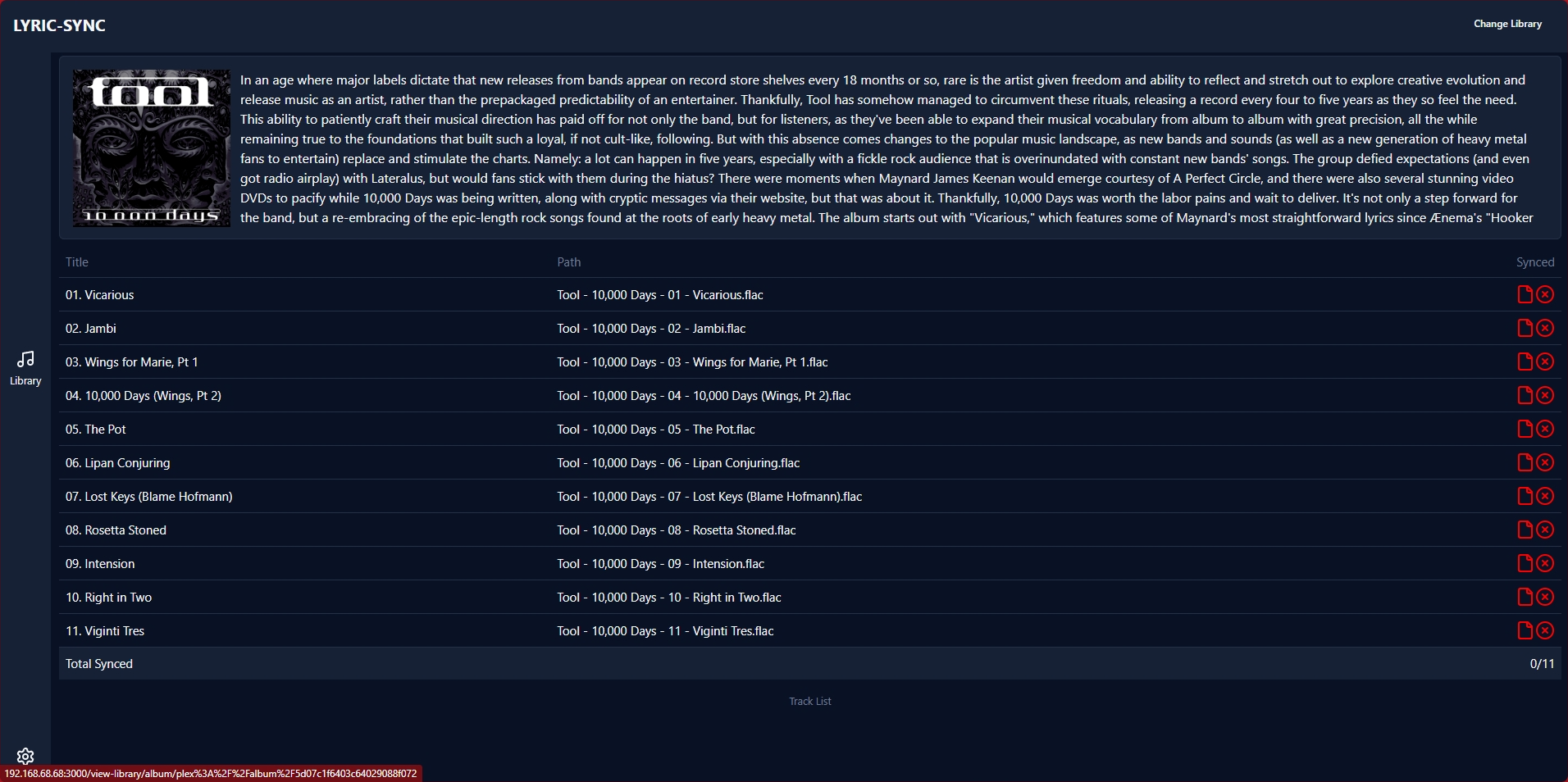
- Sync individual tracks with the click of a button
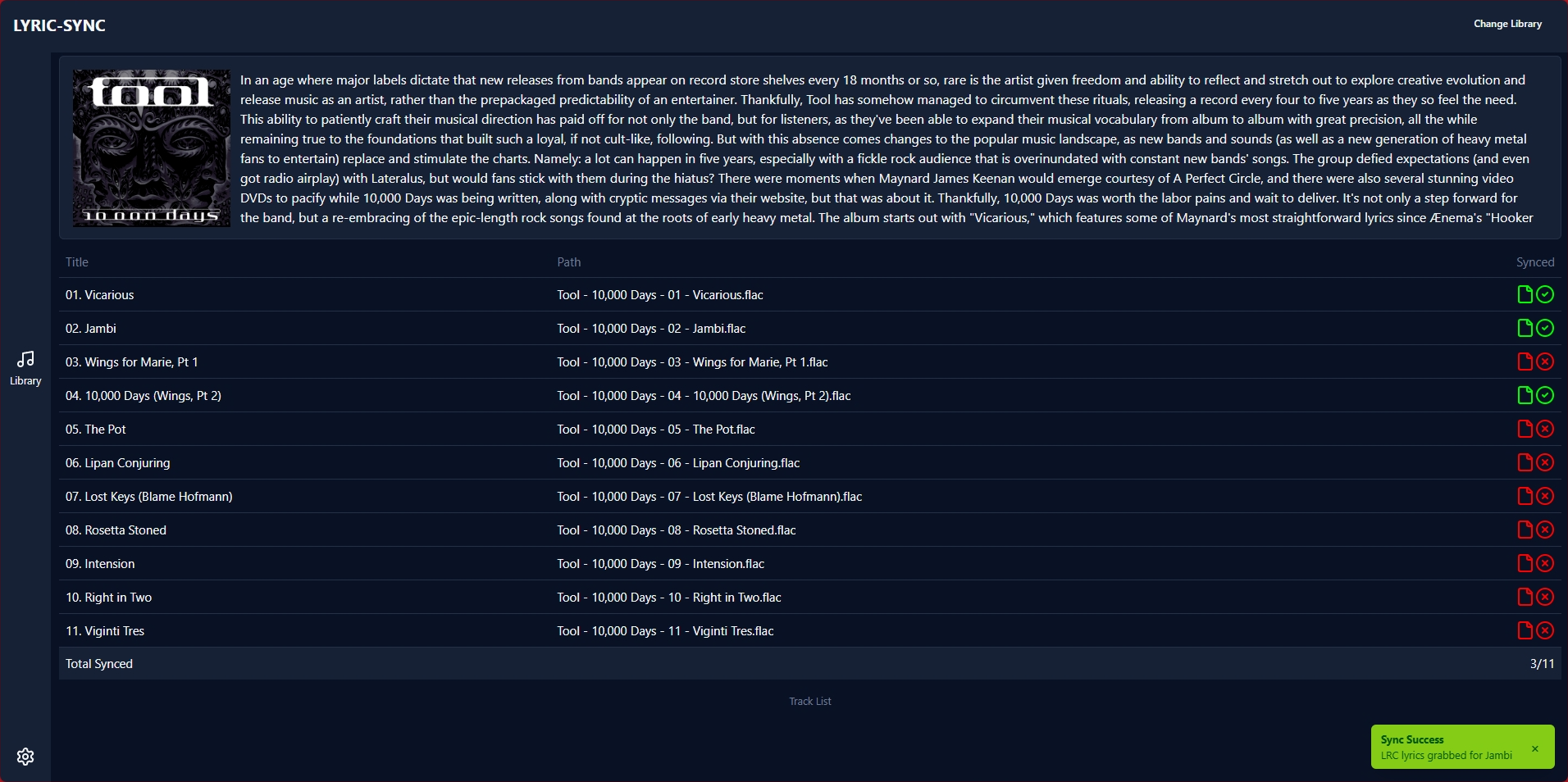
- Automatic Plex library synchronization - Keeps your database in sync with Plex libraries
- Scheduled lyrics sync - Automatically syncs lyrics for new and failed tracks
- Comprehensive sync options - Manual and automated sync modes for different use cases
Lyric-Sync supports optional Basic Authentication to secure your instance. To enable authentication:
- Set both
AUTH_USERNAMEandAUTH_PASSWORDenvironment variables - Restart the application
- You'll be prompted for credentials when accessing the web interface
Important: If you set one authentication variable, you must set both. If neither is set, authentication is disabled.
Example environment variables:
AUTH_USERNAME="admin"
AUTH_PASSWORD="your-secure-password"Docker is the recommended way to run Lyric-Sync. It just makes things easier.
Lyric-Sync must have access to your Plex Music library and the root directory must be named exactly the same. If Plex says song2 is at path /music/artist/song2.flac, then Lyric-Sync should see it there as well, otherwise Lyric-Sync won't be able to find music where Plex is telling it to.
Here is a sample docker-compose.yml
services:
lyric-sync:
image: ghcr.io/phishbacon/lyric-sync:main
container_name: lyric-sync
environment:
- ORIGIN=http://where-lyric-sync-is-running:3000
- DATABASE_URL=file:/your-music-library/lyric-sync.db
# Optional: Enable authentication
# - AUTH_USERNAME=admin
# - AUTH_PASSWORD=your-secure-password
volumes:
- /your-music-library:/your-music-library
ports:
- "3000:3000" # lyric sync runs on port 3000
restart: unless-stoppeddocker-compose up -d and you're on your way.
Lyric-Sync includes an automated cronjob system that runs in the background to keep your data synchronized:
- Every hour: Syncs lyrics for failed tracks and new tracks
- Every 6 hours: Comprehensive lyrics sync for all unsynced tracks
- Every 12 hours: Syncs Plex library data with the database
The cronjob system ensures that:
- New tracks added to Plex are automatically detected and synced
- Failed lyric syncs are retried with exponential backoff
- Plex library changes (new artists, albums, tracks) are reflected in the database
- Removed content is cleaned up from the database
When you first add a library to Lyric-Sync, the system automatically:
- Syncs library metadata from Plex
- Downloads all artists, albums, and tracks for the library
- Sets up the database structure for lyric syncing
- Begins the automated cronjob system for ongoing synchronization
You can also manually trigger syncs via the API:
POST /api/sync-plex- Manually sync Plex library dataPOST /api/sync-lyrics/sync-all- Manually sync lyrics for a libraryGET /api/get-latest-plex-data- Sync content for the current library
Or the old fashioned way
# grab the latest image
docker pull ghcr.io/phishbacon/lyric-sync:main
# and run
docker run -p 3000:3000 \
-e ORIGIN=http://where-lyric-sync-is-running:3000 \
-e DATABASE_URL=file:/your-music-library/lyric-sync.db \
# Optional: Enable authentication
# -e AUTH_USERNAME=admin \
# -e AUTH_PASSWORD=your-secure-password \
--volume /your-music-library:/your-music-library \
--name lyric-sync \
-i ghcr.io/phishbacon/lyric-sync:mainYou can also build Lyric-Sync yourself if you don't wish to run it in a container.
# clone this repo
git clone git@github.com:phishbacon/lyric-sync.git
# cd into the project directory
cd lyric-sync
# install dependencies
pnpm install
# copy the .env.example file and rename it to .env
cp .env.example .env
# build it
pnpm build
# start Lyric-Sync
node buildLyric-Sync is an open source project, it is made possible with contributors like you.
The best way to start contributing to Lyric-Sync is by having access to an instance of Plex. This way, you can populate the database with real data and get real responses back from Plex.
# clone this repo
git clone git@github.com:phishbacon/lyric-sync.git
# cd into the project directory
cd lyric-sync
# install dependencies
pnpm install
# copy the .env.example file and rename it to .env
cp .env.example .env
# start the project
pnpm devLyric-Sync is currently using Skeleton v3 Beta one issue I have noticed is that when doing an each block with cards, the first one is always sized differently than the ones that follow. My current workaround is to just add a dummy entry to the array that is being iterated over. The dummy entry has a hide_me key on it so we can hide the offending card.
Open an issue!

